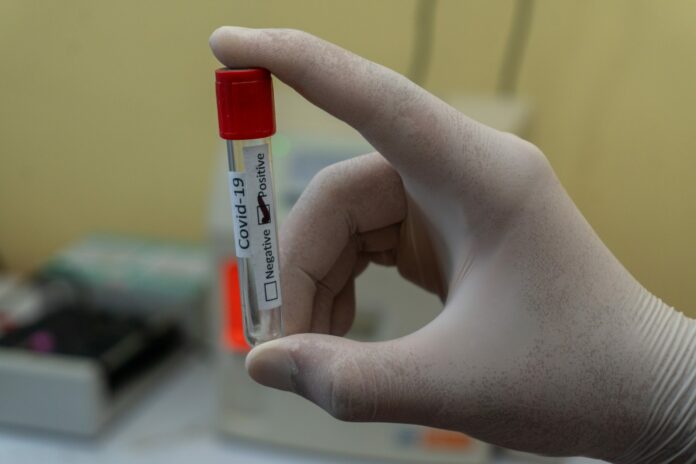CLARE recorded the second highest incidence of Covid-19 from St Stephen’s Day to New Year’s Day, writes Dan Danaher.
The incidence rate in Westmeath was the highest at 3,056.2 per 100,000 people. This was followed by Clare, with an incidence of 1,974 per 100,000 and Kilkenny at 1,855.2 per 100,000, while it reached 1,820 per 100,000 in Longford.
People who were infected had to isolate while close contacts were forced to restrict their movements.
There were 70 confirmed cases of Covid-19 being treated in University Hospital Limerick (UHL), on Tuesday, January 11, which was the second highest in the country after Galway University Hospital on 78. Nine of the confirmed cases in UHL are being treated in ICU and there was no spare intensive care bed on Tuesday. UHL is also treating 27 suspected cases of the virus.
The high number of cases in hospital comes after the Mid-West Public Health Department warned their preliminary analysis indicates that they are seeing at least 2,300 new cases in the Mid-West region per day.
It is probable the real infection rate is higher due to the unprecedented levels of transmission across the three counties and nationwide.
There were almost 6,000 new cases over a two-week period in the Mid-West before Christmas. They included 1,525 new cases of Covid-19 in Clare from December 10 to December 23, 2,334 in Limerick and 2,126 in North Tipperary.
The Public Health Department confirmed the Mid-West region is experiencing its highest rate of Covid-19 infection since the pandemic began in March 2020, due to “unprecedented levels” of community transmission across all pockets of society as a result of the current Omicron wave.
“The current high volume of cases is resulting in delays in data validation and reporting of Covid cases by county. This includes delays in providing separate county data for Clare, Limerick, and North Tipperary. A number of solutions are being put in place to address the challenge of reporting on unprecedented case numbers.”
The current high incidence is placing additional pressure on the department to chart the spread of Covid-19 in the community, and to get a clear and complete disease profile across Clare, Limerick, and North Tipperary.”
Reductions in scheduled care across the UL Hospitals’ Group have been extended for a further week from Monday, January 10 to Friday, January 14 as high levels of Covid-19 related staff absences mean emergency and time-critical care must be prioritised.
This includes University Hospital Limerick, Ennis Hospital, Nenagh Hospital, St John’s Hospital, and Croom Orthopaedic Hospital. Services at University Maternity Hospital Limerick are unaffected. All impacted patients are being contacted directly by the hospital.
Emergency and trauma theatre continues to operate and time-critical outpatient appointments are also being accommodated both face-to-face and virtually. The curtailment of services is being kept under continuous review.
Patients directly affected by this decision are being contacted directly the group and will be rescheduled at the earliest opportunity.
Services which continue include dialysis (UHL), Acute Fracture Clinic (UHL), cancer services and self-critical outpatient clinics.
Paediatric clinics and ante-natal clinic; colposcopy clinic; diabetes in pregnancy clinic; elective c-sections and induction of labour (UMHL) will also continue.
While services at University Maternity Hospital Limerick are unaffected, an outbreak of Covid-19 and high levels of community transmission mean the temporary restrictions on access to inpatient wards for nominated support partners must for now remain in place.
Access for nominated support partners to our inpatient wards at UMHL is limited to one two-hour slot per day between the hours of 2pm and 8pm.
Staff absences in the group from 675 on Friday 487 on Wednesday across the six hospital for reasons connected with Covid-19. This accounts for 9.7% of the Group’s whole time equivalent (WTE) staff total of 4,974.
“Hospital staff are again demonstrating enormous professionalism and commitment to patient care – through redeployment, overtime, etc – to support essential services during this latest Covid-19 wave. Our thoughts are with all staff who are currently unwell,” said a group spokesman.

